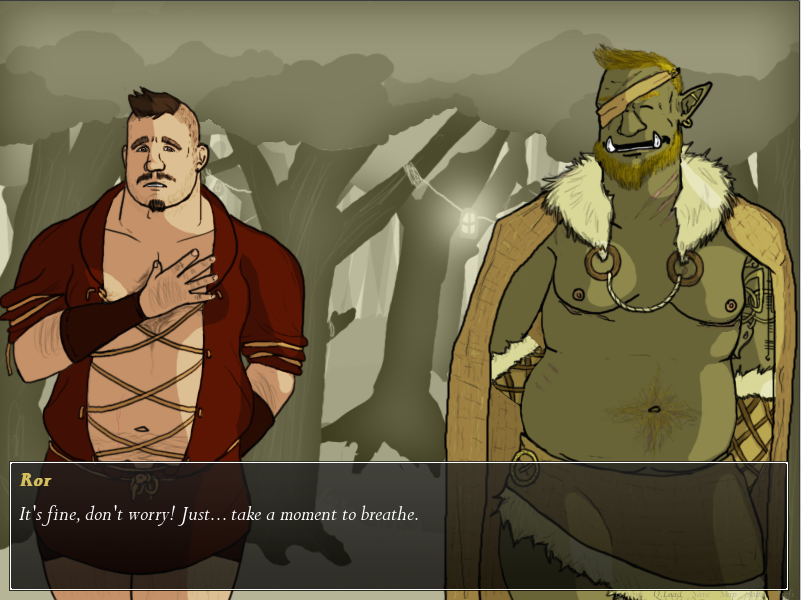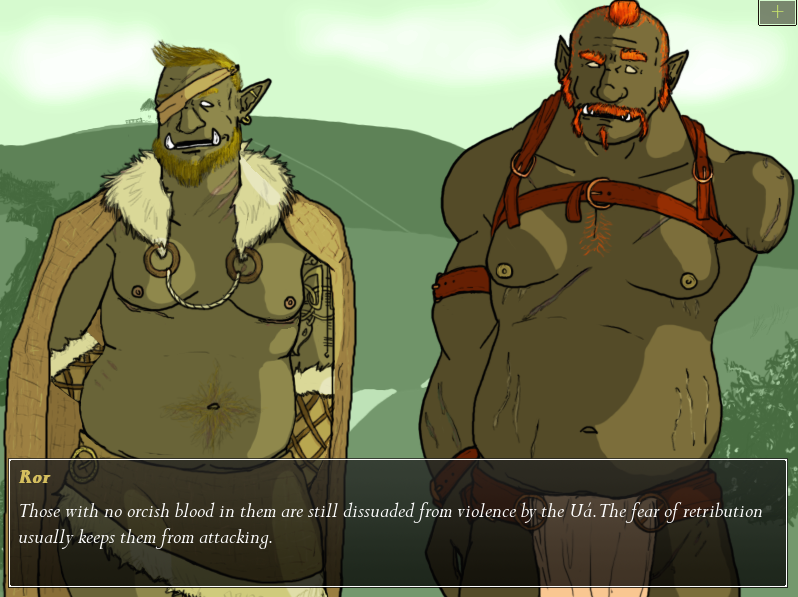Though the dismantling of the Don’t Ask Don’t Tell policy was a step forward, homophobic attitudes still run rampant in contemporary military culture. For some reason, the modern world seems to construe homosexuality as the direct antithesis of masculinity. Which is odd, considering that the ancient Greeks—responsible for the most formidable armies in all of human history—viewed homosexual relationships as an integral bonding experience for soldiers.
You could argue that, on both a biological and conceptual level, there is nothing more masculine than two male comrades sharing physical and/or emotional intimacy. The Spartans knew that, yet you find this aspect of their philosophy oddly absent from contemporary representations like 300. Funnily enough, despite all their attempts to heteronormify the Spartans, 300 still reads as one of the most homoerotic tales ever told in slow motion.

That’s due to the homophobia we conceive as being almost synonymous with military culture is, in fact, a construct of the past few centuries. If anything, an innate human experience of male military groups would—as evidenced by the ancient Greeks—likely swing the other way without certain social interferences. Which is why Scottish game designer Mitch Alexander is creating Tusks, the gay dating sim about orcs that’s far less ridiculous than it might initially sound.
Originally, Alexander came up with the idea while playing Skyrim and roleplaying as a gay orc who was part of an orcish stronghold. “The stronghold idea is such a strong romantic one, because it echoes the subcultural communities that members of marginalized groups create for themselves for mutual support,” he explains. Yet, despite how appropriate homosexuality felt in the context of an all-male stronghold within a hyper-masculine military race, Alexander realized that no previous lore had ever even explored the possibility whatsoever.
Which is why he set out to change that.
“Masculinity is all over orcish lore,” Alexander explains. “Sometimes in ways that I think are fun and interesting. Most often in ways that are limiting or trite.” Originating with Tolkien, many depictions of orcs portray them as somewhat asexual—perhaps in a unconscious attempt to avoid the inevitable homoeroticism that would arise from an all-male gathering of hyper-masculine soldiers. At most, Alexander explains, some versions of orcs prove their masculinity by possessing the women in their tribe. But asexuality seems to be more of the default which, again, is strange for a race that is to perceived to embody the supposedly sex-obsessed male gender.
“In general, orcish lore centers around violence that’s very patriarchal. Male warchiefs typically win their positions by being in peak physical form and fighting other men,” Alexander says. “Yet, despite all the homoerotic connotations built into the culture through ritualized male-on-male body contact, orcs never turn out to be gay. Because they’re ‘manly men,’ and it’s hard for many to consider that men with various levels of attachment to masculinity can also be homosexual.”

In Tusks, homosexuality and masculinity are not mutually exclusive because, in real life, homosexuality and masculinity are not mutually exclusive. “I think we can embrace masculinity both in real life and in games without always re-enacting the harmful tropes that tend to accompany it,” Alexander says. “Masculinity is actually a lot more interesting when it’s not mandatory, and doesn’t demand its worst traits to be held up as inherently good.”
As a member of a newly forged orc clan in Tusks, the player must develop relationships with other members by getting to know them. Wether those relationships result in platonic or romantic interactions is determined by a complex system of variables. These characters are not the one-dimensional brutes seen in Tolkien’s universe, however. “You interact with orcs who just don’t fall into the traps demanded of them by masculinity,” Alexander says. One orc in the group rejects the idea that big, beefy orc men are necessarily skilled warriors. While another, who internalized some of the strict rules of masculinity, struggles with mental illness, which others may construe as weak.”
Complex characterization isn’t the only way Alexander is differentiating his NPCs (non-playable-characters) either. “I’ve found that in games exploring power, relationships, and sex, the messages can often be undermined by the fact that the player is the only empowered, autonomous agent in the entire world.” Though games like Mass Effect and Dragon Age purport to include progressive sexual mechanics, relationships are often reduced to saying the right things and giving the right gifts to unlock access to another character’s body.
So, instead, Tusks uses what Alexander calls an NPC Autonomy Feature, allowing non-player-characters to respond differently to certain situations in different playthroughs. “They can reject your advances for reasons they may or may not disclose, and even notice if you’re just saying things because you think that’s what they want to hear.”
One of the very first decisions the player must make is naming the orc group. But, because other members get a vote in the matter, your suggestion may very well be shot down. As in real life, the level of intimacy deemed appropriate for a relationship in Tusks isn’t just up to the player, either. It’s a mutual exchange, and susceptible to unforeseeable variables.

Though Tusks is a game that’s very personal to Alexander’s experience as a gay man, he hopes others will play it and be inspired to explore the specifics of their own identity through fantasy and game-making. “I think there’s ample ground for examining orcishness through multiple different intersections of gender, race, class and so on. But, even if people are not as inclined to making a game about smooching orcs, I’d be happy to see others adapting the concepts in Tusks to fit their own experiences with identity.”
There’s no official release date for Tusks, but Alexander hopes to have a playable demo released by the end of April. You can keep up to date through the game’s website, and be sure to reach out to Mitch with any questions or comments.
